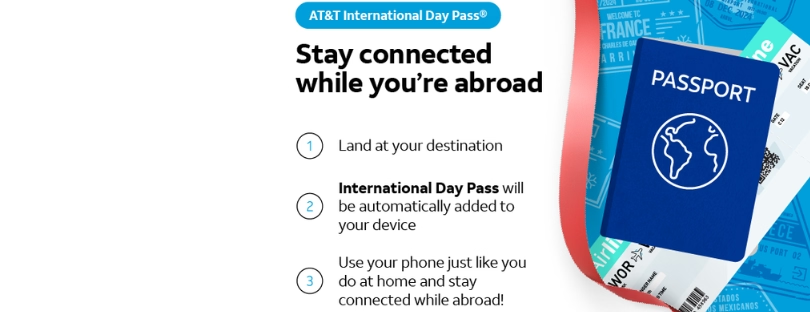
EU roaming and all news that will enter into force from 1 July 2022
Roaming in the European Union under the same national conditions will still be valid for another 10 years , until 2032, thanks to the new European regulation that was published in the Official Journal of the EU but which will enter into force from 1 July 2022 with some innovations that they will also affect the GB thresholds. eu roaming
Therefore, after the approval by the European Parliament on 24 March 2022 and the subsequent formal approval by the European Council , there was only the publication in the Official Journal to make everything official and to conclude the legislative process.
Following the signing of the final act on 6 April 2022, yesterday, 13 April 2022 , the new regulation on EU Roaming was published in the Official Journal (L115) , which makes the extension for the next 10 years definitive. with the relative innovations that will be introduced.
With the new EU Regulation 2022/612 signed on 6 April 2022 by the President of the European Parliament Roberta Metsola and by the President of the Council Clément Beaune, a recast of the previous EU regulation no. 531/2012, which entered into force on 15 June 2017 , which will expire on 30 June 2022 and will thus be repealed.
In this way, from 1 July 2022 the new Regulation 2022/612 will officially enter into force with an extension for another 10 years proposed by the European Commission in February 2021, also with some changes compared to the current Roaming Like At Home (RLAH) regulation , which allows European citizens to use their mobile offer under the same national conditions when roaming in other European countries.
European union mobile serviceNew thresholds of Giga in EU Roaming every year until 2027
Among the main innovations that will be introduced by the new regulation on European Roaming there will also be the Giga thresholds that can be used without surcharges.
With the new regulation, starting from 1 July 2022, there will first of all be a new gradual reduction in wholesale roaming prices , i.e. the prices that operators apply to each other for the use of their respective networks when their customers travel abroad.
With regard in particular to data traffic, whose last reduction provided for by the current regulations expiring on 30 June 2022 came into force on 1 January 2022 , when the limit passed to 2.50 euros (excluding VAT) per GB , according to the provisions of the new text, there will be 6 further reductions in wholesale prices.
In detail, from 1 July 2022 to 31 December 2022 the ceiling will drop to 2 euros (excluding VAT) per GB , from 1 January 2023 it will then be 1.80 euros (excluding VAT) per GB , from 1 January 2024 it will drop at 1.55 euros (excluding VAT) per GB , from 1 January 2025 it will be equal to 1.30 euros (excluding VAT) per GB , from 1 January 2026 it will drop to 1.10 euros (excluding VAT) per GB , and finally, starting from 1 January 2027 onwards , the ceiling will stabilize at 1 euro (excluding VAT) per GB .
Therefore, from 2027 the price should remain at 1 euro per Giga until the new deadline set for 30 June 2032 .
In this way, in the next 10 years, there will therefore be another 6 increases in the maximum amount of data traffic that can be used in EU roaming calculated with the current formula.
The maximum wholesale costs envisaged for telephone calls and SMS will also continue to decrease , currently equal to 0.032 euros per minute and 0.01 euros per message, respectively.
From 1 July 2022 until 31 December 2024 the ceilings will be 0.022 euros per minute for calls and 0.004 euros for each SMS, while from 1 January 2025 onwards they will be 0.019 euros per minute for phone calls and 0.003 euros for each SMS.
The ceilings for tariffs between operators are set at a level which allows them to recover the costs associated with the provision of roaming services. eu roaming
The European Commission will follow the evolution of the situation and, if appropriate, will present a new legislative proposal to regulate the wholesale tariff caps and possibly other aspects of the roaming market.
It should also be noted that the fair use policy, which aims to prevent permanent roaming, will be maintained. The Commission may suggest to make changes after a market analysis and due assessment of the potential impact.
The other news on 4G and 5G, additional costs and emergency services eu roaming news
Among the other innovations that will be introduced by the new regulation on European Roaming from 1 July 2022 there will also be the possibility for consumers to have access abroad, in the countries of the Union, to the same services they have access to in their own country , provided that the same networks and technologies are available on the network in the visited Member State.
This means that if a consumer uses 4G or 5G connectivity in their country, when roaming they will not only have to have 3G (or 4G) connectivity, if 4G or 5G are available where they go .
According to the new roaming regulation, operators will have to inform their customers about the quality of the services they can expect when roaming by stating this in the roaming contract and posting the relevant information on their website.
Another novelty concerns the use of roaming services on the so-called non-terrestrial networks , which are routinely used for mobile connections on board aircraft and ships and are not governed by the rules on roaming.
In this case, consumers will have to be informed by SMS of the additional charges for the use of these networks, which usually entail additional costs.
Also, when traveling by plane or ship, cell phones can inadvertently connect to a non-terrestrial network. For this reason, operators will also have to offer customers tools to avoid additional costs, such as the option not to connect to non-terrestrial networks .
In this regard, with the new rules , roaming services will be automatically interrupted upon reaching a total cost of 50 euros , or other predefined limit, to avoid additional costs. This also applies to roaming outside the Union.
As already explained in the Commission’s first proposal , with the new regulations, European consumers will also have to be informed about the types of services that may entail additional costs , i.e. the so-called “value-added services” , such as calls to customer assistance numbers, helpdesks. or insurance companies. These services may be free when called from your own country, but may incur additional costs when called while roaming.
Finally, from 1 July 2022 there will also be news for emergency services , access to which, including the location of the caller , must be guaranteed free of charge , not only for calls to “112” but also for alternative access methods.
By June 2023, operators will automatically inform roaming customers , who will receive a message upon entering a Member State, with information on calls to “112” and other available ways to access emergency services.
The operator will also need to ensure that customers with disabilities are aware of the emergency services . Roaming customers will be notified via national public alert applications, where available.
If in general the new rules on EU Roaming will come into force from 1 July 2022, on the other hand the information obligations for operators regarding the series of numbers for value-added services, on alternative means of access to emergency services and on banks data on the value-added services that BEREC will have to establish by 2022, these will apply from 1 June 2023 .
In which countries new EU roaming rules applies
The countries in which the EU Roaming regulation is valid are all those of the European Union , in addition to the countries of the European Economic Area (EEA) : Austria, Belgium, Bulgaria, Cyprus, Croatia, Denmark, Estonia, Finland, France ( including Guadeloupe, French Guiana, La Reunion, Mayotte, Martinique), Germany, Gibraltar, Greece, Ireland, Iceland, Latvia, Liechtenstein, Lithuania, Luxembourg, Malta, Norway, Holland, Poland, Portugal, Czech Republic, Romania, Slovakia, Slovenia , Spain, Sweden, Hungary.
The United Kingdom , due to the completion of Brexit, from 1 January 2021 is no longer officially part of the European Union, and therefore theoretically would no longer be included in the countries where it is possible to take advantage of the Roaming Like At Home regulation, even if so far the operators (at least in Italy) have kept conditions unchanged.
In general, the behavior on Roaming Like At Home in the UK is at the discretion of individual operators , based on their agreements with UK operators, so in the future they will be able to decide whether to continue to include the use of their national bundles even when there. located in the UK or not. eu roaming








